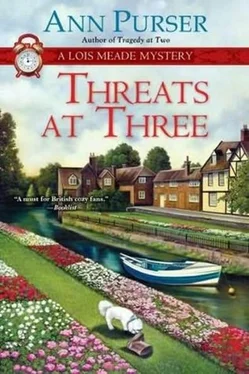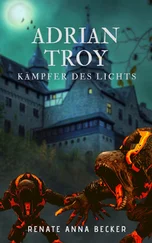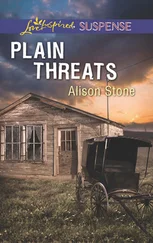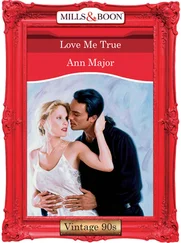“All well?” said Mrs. Tollervey-Jones, standing at the top of the curving staircase. “I thought you looked a bit peaky last time. Must be difficult for you, coping without a husband and with those boys of yours.” Paula was surprised. The old woman had seemed remote, uninterested in her, but here she was, knowing all about Paula and with a sharp eye, missing nothing.
“I’m fine, thank you,” Paula said. “I do have a husband, by the way. He’s just not with us at the moment.”
“Upside down in the canal, possibly,” said Mrs. Tollervey-Jones bluntly, and swept down the stairs and into the drawing room, from whence came sounds of a piano being played with what Paula reckoned was a pretty nifty pair of hands.
Why did she say that? Surely she wouldn’t be so cruel deliberately? Paula wondered whether she could ask Mrs. M to transfer her to another client, but immediately rejected the thought. Difficult as it might prove to be, the hall was a magic place to work. Then, for the first time it occurred to Paula that if the dead body was Jack, then she need never look anxiously down the drive again. She stood stock-still, leaning on the mop, overcome with the desire to weep.
“Why don’t you pack up, now, Mrs. Hickson. Get along home.” Mrs. Tollervey-Jones had not meant her tactless remark to be taken to heart, and hearing muffled sounds, had returned and tried to make amends. She was careful not to look at Paula, but asked her if next time she came, would she like to have a try at flower arranging? “Heaps of them in the kitchen garden, just for picking,” she said. “Whenever I do them, they end up looking like a bunch of carrots.”
Paula finished everything she had been told to do, and asked if there was anything else. Reassured that her work had been excellently done, she went out to her car and chugged off down the drive. Her mobile rang and she stopped to answer it.
“Paula? Mrs. M here. Could you spare me a few minutes before you go home? Good. See you then.”

SIT DOWN, PAULA,” LOIS SAID. “YOU ALL RIGHT?” Paula nodded. She wasn’t all right at all, but was desperate to keep in control in front of her new boss. “Yes, thanks,” she said. “I had a good morning at the hall. Mrs. Tollervey-Jones has asked me to do the flowers next time I go. Is it allowed?”
“Sure. If you can make a good job of them. Thank goodness she’s never asked me!”
“I went to classes several years ago. Before I was married.”
“Ah,” said Lois. “Now, that’s why I asked you to drop in. I expect you saw the news? About the man in the canal?”
Paula nodded. “It’s not him, o’ course. Not my Jack.” She felt her heart begin to race and couldn’t catch her breath. “You’ve not heard nothing?”
“No, not much more than you already know,” Lois said. “But if you could tell me about your Jack, I can probably do some checking.”
“What d’you want to know?”
“Everything,” Lois said. “Where you met, married, lived. But first, what does he look like? Tall, short, dark, fair, bald…?” She was careful to put him in the present tense, to consider him alive rather than dead. Paula’s “my Jack” was a giveaway that she still felt something for him, surely.
“He’s a good-looking bloke, or was, before he went on the drink and began to neglect himself. Tall, big built, dark hair cut short. Or should be. It was his eyes that I first noticed. Not often you see such black eyes. Well, I know they can’t be really black, but they’re quite scary sometimes.”
“What was his work?”
“He was a gardener, worked for the borough in the parks an’ that. Loved it. But they started laying men off, last in first out, and he’d not been there long. We came from Bedford, where he’d had the same kind of job.”
“Why did you move to Tresham?”
“His old mum. She was very poorly, an’ he wanted to be near to help. Only child, was-is-Jack. She died soon after we’d moved here, so it was a bad decision as it turned out. He tried to get back to the Bedford job, but they’d filled his position, so we just stayed on in Tresham.”
“Bad luck,” said Lois. “Had he ever had any trouble at work? You know, quarrels with workmates, an’ so on?”
Paula shook her head. “He was popular. Good at making friends. He really liked the job after being there a good while. Then he was made redundant, and his friends tried to get him taken back but no luck. Then he began to change. You know the rest.”
“Last question, then we’ll have a coffee. Has he got any marks on him, you know, birthmarks or scars or moles? Sorry, Paula, but it’s important.”
Paula looked at her suspiciously. “Why d’you need to know that? Who are you goin’ to talk to?”
Lois sighed. “A friend in the police,” she said, and Paula’s face took on a stubborn look.
“Oh, no. Not the police, Mrs. M. I don’t want no truck with them.”
“You might have to,” Lois said. “You’d rather tell me than some young cop, wouldn’t you?”
Paula was silent for a few minutes, and Lois walked over to the window, deliberately looking away.
“He’s got an appendix scar.” Paula’s voice was very quiet. “Had it out when he was a kid. Scar’s still there, though.”
Lois turned around. “Thanks,” she said. “Come on, let’s go and find Gran. She’ll fill you in on the excitements of the WI tonight.”
“WE STILL SING ‘JERUSALEM,’” SAID GRAN, MAKING AN EFFORT. She was still convinced that Lois was making a big mistake employing this woman, but was not able to be rude to her face. “Not very well, o’ course. And the piano in the village hall is terrible. Sometimes only about half the notes work. Mostly we sing without.”
“I like singing,” Paula said.
“Yes, well, then we have the business of the meeting. That takes some time, with Mrs. T-J liking the sound of her own voice. Then we have a speaker or someone demonstrating cookery or needlework, or some such.”
“What is it tonight, Mum?” Lois said.
“We got a police dog handler coming. It was Sheila Stratford’s idea. Says they got good stories to tell, about dogs catching villains an’ holding on to ’em with their teeth. I reckon it sounds a bit bloodthirsty, but still…”
Paula gulped down hot coffee and said she really must be going. She had shopping to do, and then it would be time to fetch Frankie.
Lois saw her out, and then returned to the kitchen. “Well done, Mum,” she said. “That sent her packing.”
Gran sniffed and said, “I don’t know what you mean, Lois. But then,” she added, “I seldom do.”
KATE ADSTONE SHUT THE FRONT DOOR AND LOCKED IT, THEN maneuvered the pushchair down the narrow path and set out for the shop. Cecilia was fast asleep, and Kate, seeing that the shop door was wedged open, parked the pushchair outside and went in.
“Hi, Kate,” Josie said cheerfully.
“Is it all right to leave Cecilia out there? You hear such terrible stories of babies being stolen.”
“Bring her in if you’re worried,” Josie said. “I very much doubt if there’s any baby snatchers in Farnden this afternoon, but most mums bring the babies in.”
Kate returned to Cecilia and met Paula Hickson coming across to the shop.
“Can I give you a hand?” Paula said, and together they lifted the pushchair into safety.
“Just being silly,” Kate said apologetically.
“Better safe than sorry,” Paula said. “You first, Mrs. Adstone. You were here first.”
Kate looked at her closely. “Haven’t we met somewhere before?” she said. “Excuse me if I’m being cheeky, but I’m sure we’ve met.”
Читать дальше
